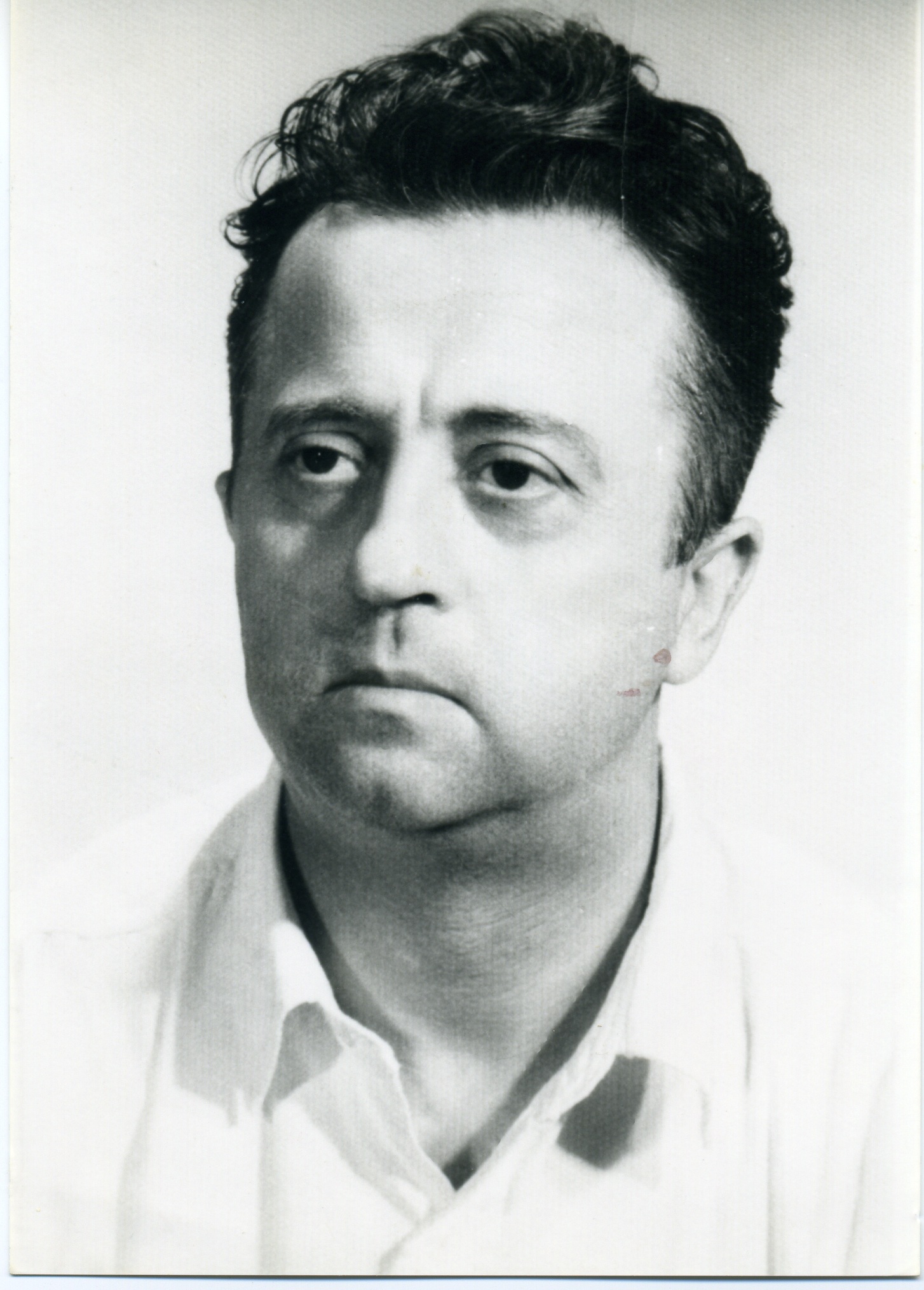OKI: The Great Dr. Janež 【Parent-Child Reading Guide】
點閱次數:2372Caring for Patients as if They Were His Own Family
Dr. Oki (Janez Janež, 1913-1990) of St. Mary’s Hospital Luodong was legendary. During his 38 years in Taiwan, he performed over 80,000 operations, and he was still performing surgery until a monthbefore he passed away. Since he was tall and well-respected, people nicknamed him "Oki" (which means "big" in Japanese). Comprising of his tumultuous early life, superior medical skills, diligent work ethic, as well as his stubbornness and temper, the story of Dr. Oki remains a topic of conversation even up till today.
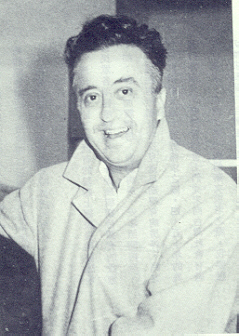
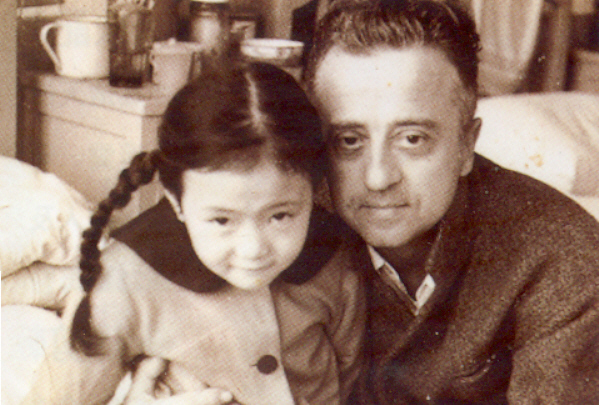
Tumultuous Early Years due to The War
In 1913, Janez Janež was born in southern Slovenia. He grew up in a devout Catholic family. Shortly after he graduated from medical school, the World War II began, whereby Janež following this outbreak got enlisted into the military. He dedicated himself to helping the injured. After the war, Slovenia was absorbed into Yugoslavia and became under the rule of a communist party which started to suppress any revolutionaries. Because Janež was unwilling to join any political party, he unwittingly supported a revolutionary and was consequently blacklisted. To avoid persecution, he had to flee.
He and a group of Slovenian refugees left for Italy. However, while stopping in Austria, they were betrayed by British soldiers who turned them over to the Yugoslavian communist guerrilla forces. Despite this, Janež managed to escape by hiding in a wheat field and with the help of a priest friend, eventually arrived at Rome. There he met a Slovenian bishop who was serving in the Diocese of Yunnan in China. When the bishop heard that Janež was willing to work in Yunnan as a Doctor, he was thrilled and immediately made arrangements for Janež to get there.
However, because it took longer than expected to get to Yunnan and there was perpetuating fear of political instability that may result in the refugees being sent back to Yugoslavia, Janež left for Argentina in 1947.He practiced medicine in a refugee camp organized by the local Catholic Church there.A year later, he went to Yunnan and worked with a group of Catholic doctors in CADIS. His excellent medical skills won him respect and love from his patients. In only a few months, everyone in the town knew him and respectfully called him "the Best"— a great doctor.
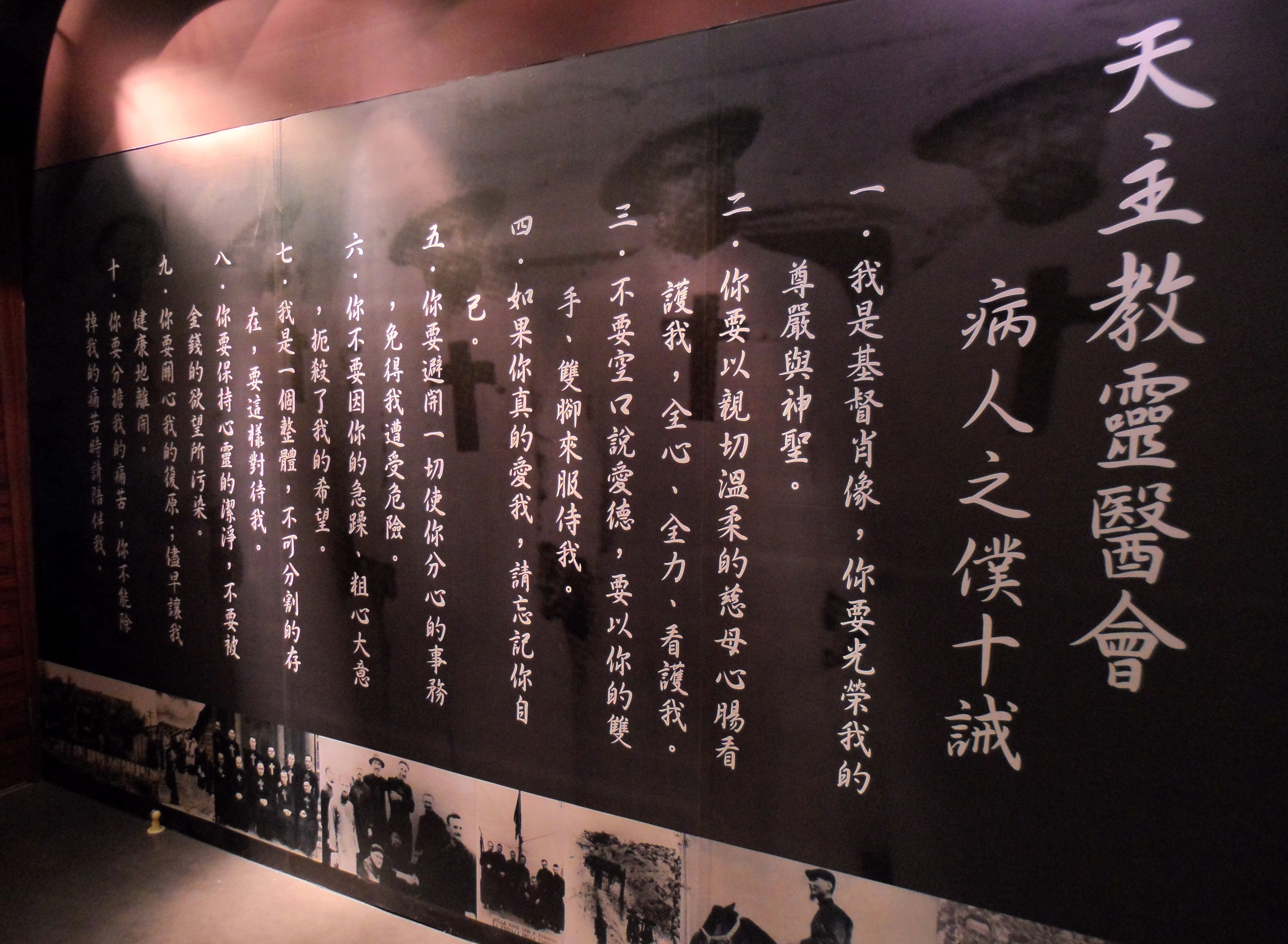
Highly Skilled And Strict At Work
In 1952, due to the oppression of the Chinese Communist party, Janež and all the Catholics, including those he worked with in CADIS, were forced to leave China. They made their way to Yilan ,Taiwan through Hong Kong. The CADIS rented a former clinic in Luodong, Yilan County. On June 15, 1952, they opened the St. Mary’s Hospital. On July 17, Janež operated on his first patient with simple equipment. He removed a 12-kg womb tumor from the patient.
At that time, Taiwan was in lack of surgeons and did not have any specialties. As a result, Janež had to perform most surgeries except for brain and cardiovascular surgeries. Everyone heard that St. Mary’s Hospital had a skilled foreign doctor who not only refused to take bribes but accepted IOUs from the poor, and the hospital would also burn off the record of patients' debts every few years. Because of this, people from all over Taiwan, not just Yilan, came to see him whenever they needed medical help.
People were very impressed by Janež’s surgical skills. It would take only 26 minutes to complete regular stomach surgery. For appendicitis surgery, his best record was 9 minutes. One of his most remarkable achievements came in 1970 where he completed a bone graft operation from bovine to human. Janež loved to keep a low profile and did not care about fame and fortune. Even though he had done a lot of rare operations, he never wanted to publish any of his achievements in medical journals nor have them promoted by the media.
Janež had high standards for himself and was very strict to other staff as well. During surgery, he was demanding in every process and step. He was also very strict with the dress code of nurses and taught them how to perform the sterile procedure. When the night shift nurses dozed off at work, he would take photos of them as evidence. If he found that the nursing record did not match the description provided by the patient, he would tell the nurse to come back to the hospital, even if outside the working hours. It was common for the nurses to be scolded to the point of crying.
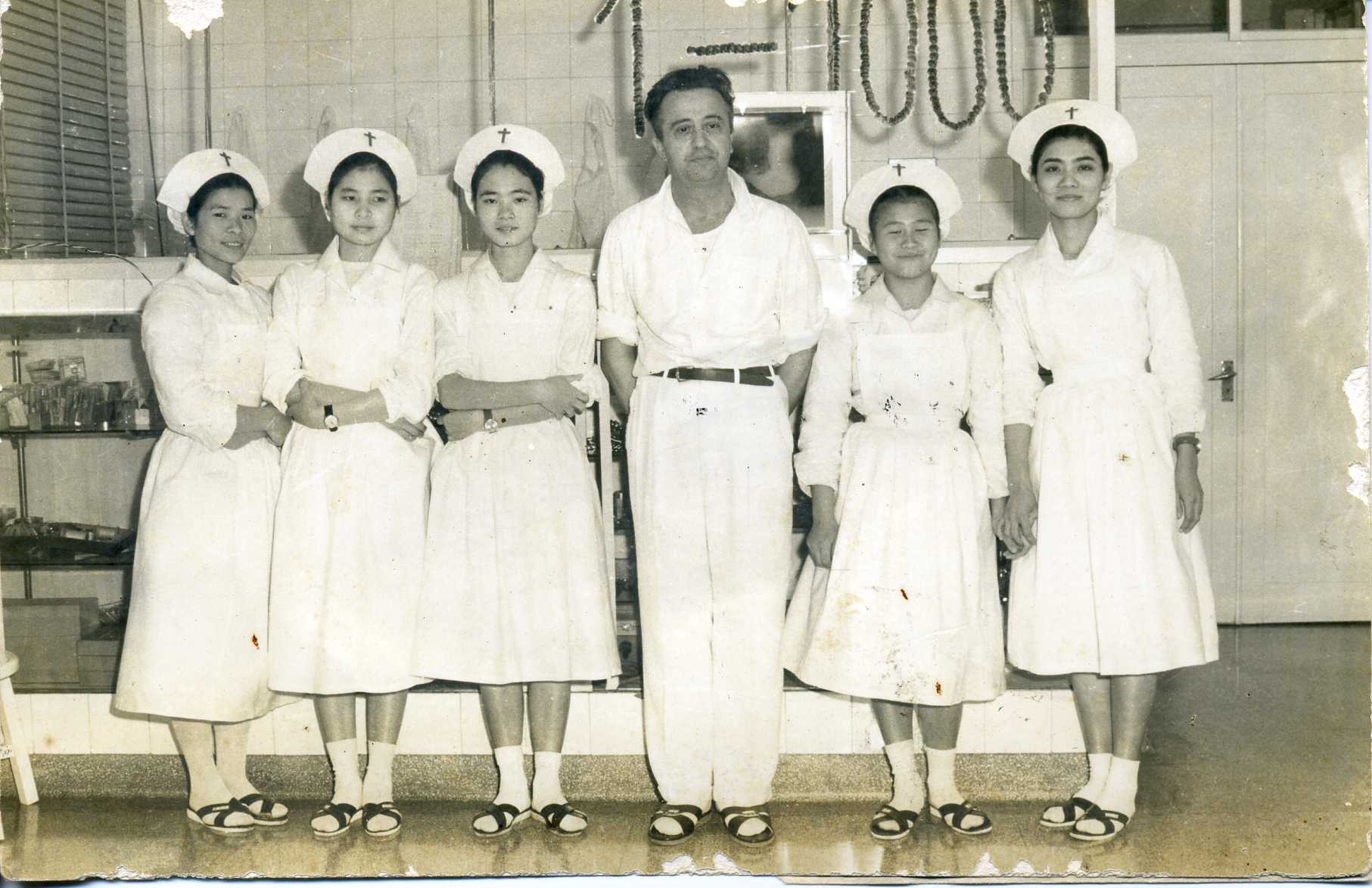
Providing Blood And Money for Patients
On the contrary, he was known for being kind to patients. If he found that the patients had financial problems, he would try to give them some money. When he saw children wearing ripped clothes in the hospital, he would go back to his dormitory and bring them apples. If he found that the patients didn’t have milk to drink, he would send someone to buy some. Janež cared for the patients so much that he would donate his own blood when there was not enough. If the patients did not show up for surgery, he would angrily question the accounting department whether they tried to collect deposits from the patients so that they changed their minds about having surgery.
The patients always came first for Janež.He wasn’t a minister, yet never got married.He once said, "I did not come all the way here for pretty girls. I came to help those girls who are sick." "My happiness is that the patients I operated on are cured and return home healthily." He lived a single life as if he were a priest. Smoking, reading and listening to classical music were his only pastimes. He used to say that his greatest joy was to hear his patients fart after surgery.
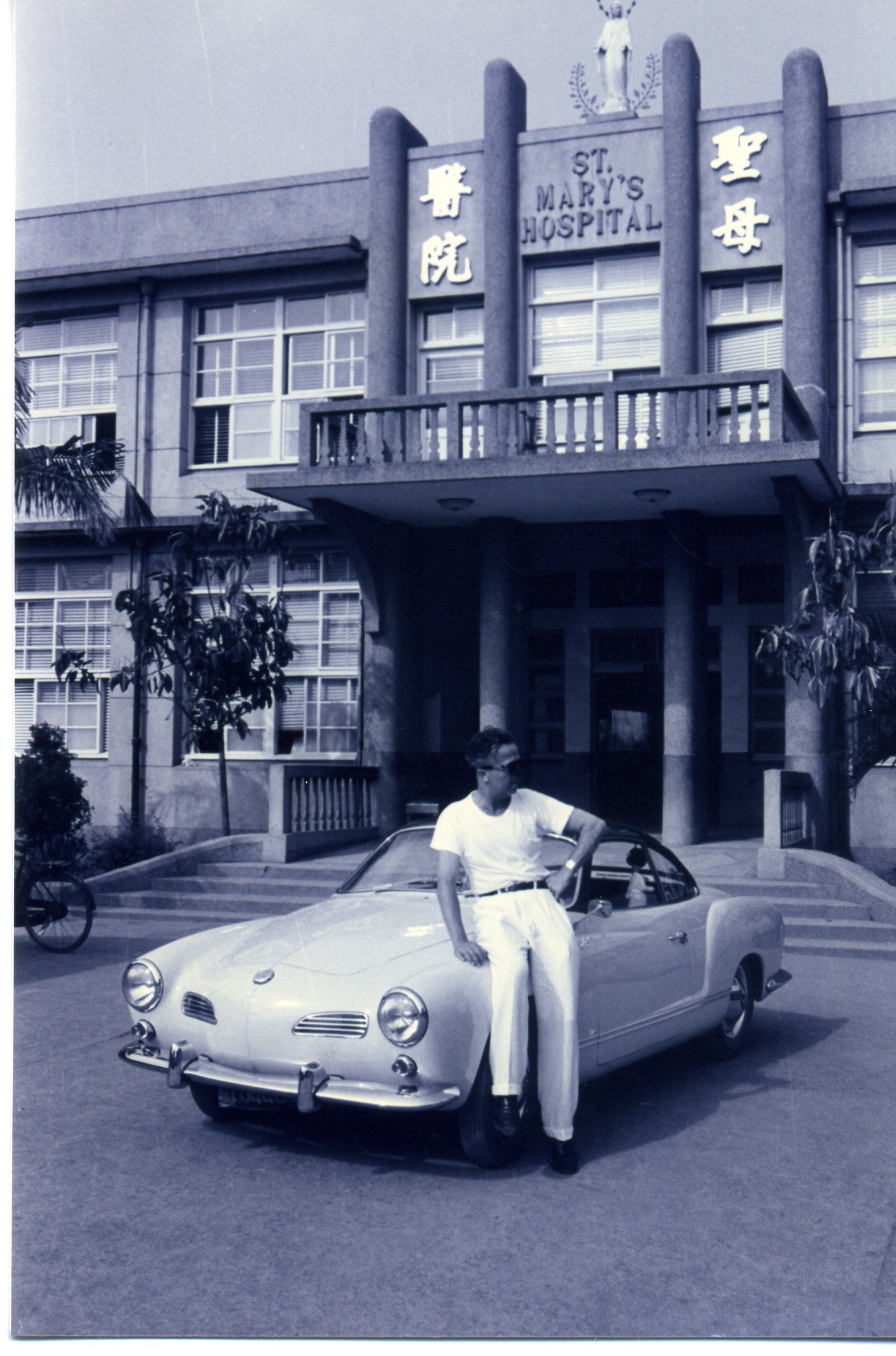
Working Until The Last Moment
Once his friends wanted to nominate him for the Nobel Prize in Peace, but he refused. A reporter of Time magazine also specially came to interview him, and he hid away. In his later years, he wrote a letter to a friend and said, "I plead you not to write about me anymore. There is no meaning to heroize me. In the hospital, I am just a worker...... I don’t expect vacations because my life is dedicated to my patients. My only wish is that I could be working until I walk into eternity."
In order to take care of every patient, Janež never left Taiwan since the day 1952 until he passed away in 1990. Even when he was sick or tired, he never took days off. Day after day he treated patients, made daily rounds visiting them, and performed operations. as he wished, he worked until the last days of his life, before returning to his heavenly home without regret.
Eight years after Janež passed away, he won the 8th Medical Contribution Award. Everyone who knew him knows that if he were still alive, he would have never accepted this award. For 38 years he spent all his energy taking care of the patients in Yilan, setting an example that can hardly be surpassed by later generations.
